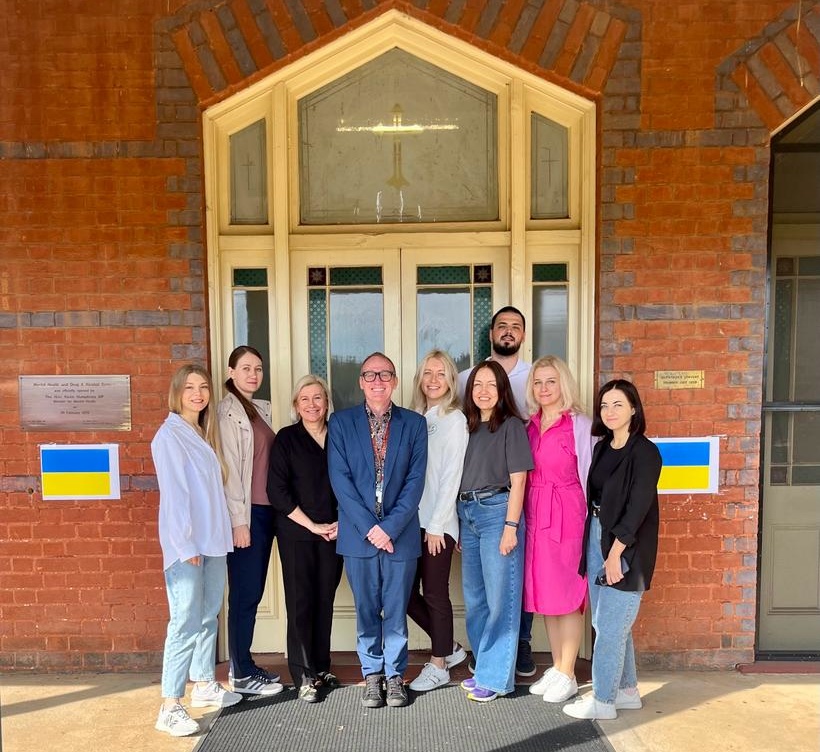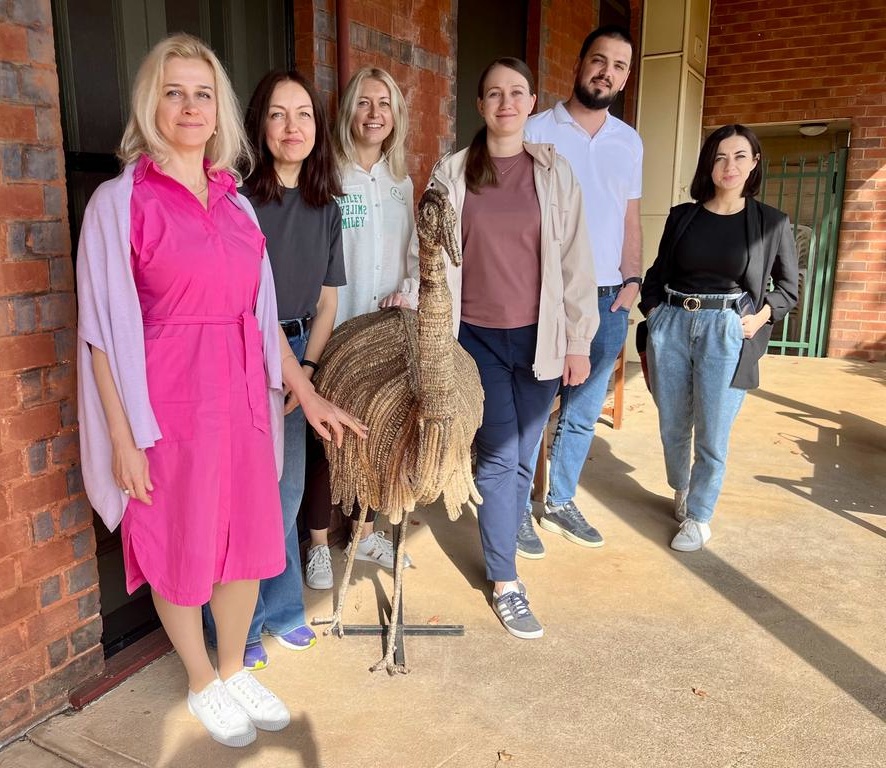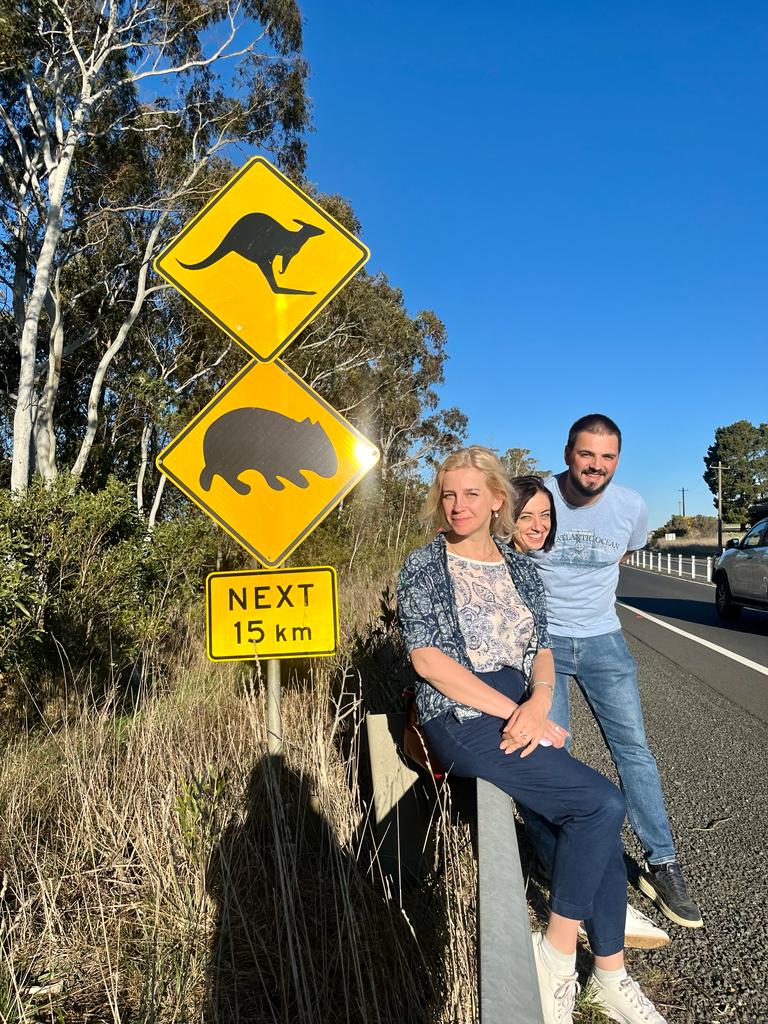Seven psychiatrists and psychologists from the Ukrainian Catholic University (UCU) in Lviv and “Bezbaryernist” in Kyiv are in Australia for three months to train in trauma management and explore mental health strategies which will help Ukraine cope with the mental scars of war.
The full-scale Russian invasion has intensified the need for mental health services for combatants and veterans, and for Ukrainian men, women and children who in their millions have suffered trauma, loss, displacement and family separation.
Dr Martsenkovskyi, one of the visiting psychiatrists, said today “Australia’s system is not the same as ours – but we can already see there are programs we can adapt.
“We are very inspired by the system of care for refugees in general, particularly the use of facilitators. This approach can be adapted to Ukrainian realities and can lower the workload on existing mental health services, which are facing growing demands yet limited financial and human resources.
“The digital interventions that are present in Australia, based on cognitive behavioral therapy, can also be extremely helpful and can increase access to highly needed specialised forms of mental health assistance, particularly in regional areas,” he added.
Traditionally, Ukraine has had a tradition of stoicism, with men in particular not talking openly about their problems. Psychiatry also faced suspicion due to its use by the old Soviet Union to imprison opponents of the regime on the basis of ‘insanity’. Most care is also conducted in hospital and clinical settings, rather than being community based.
But times are changing. The role of leaders, such as the President’s wife Olena Zelenska, in talking about mental health has helped, as have already established Ukrainian programs similar to Australia’s ‘R U Ok?’ campaign.
The trip to Australia has been organised by Dr Tanya Dus, Director of Psychiatry at Royal Prince Alfred Hospital in Sydney, who successfully facilitated the grant of Australia Award Fellowships by the Department of Foreign Affairs and Trade (DFAT) for the young professionals. They will be based primarily at the NSW Service for the Treatment and Rehabilitation of Torture and Trauma Survivors (STARTTS) and will visit the ACT and regional NSW.



